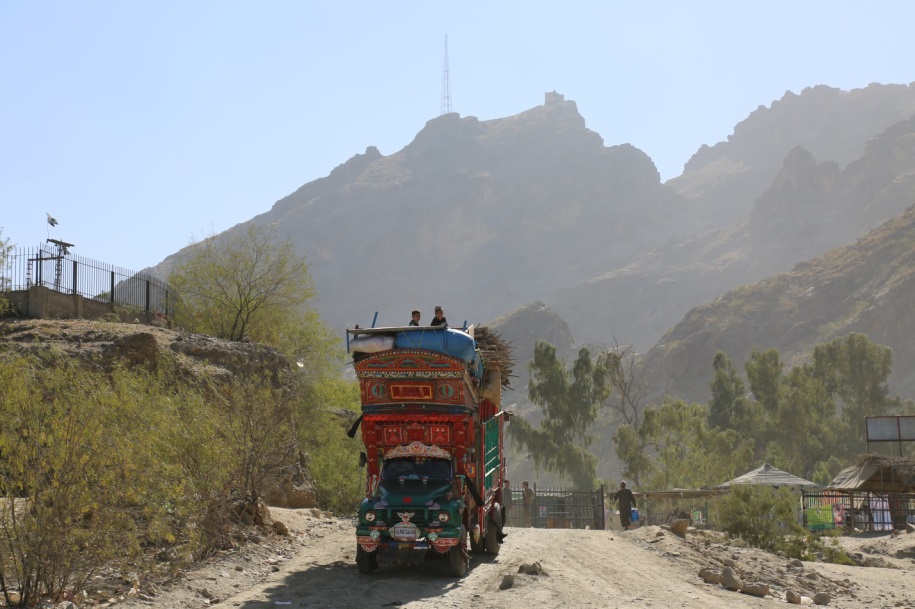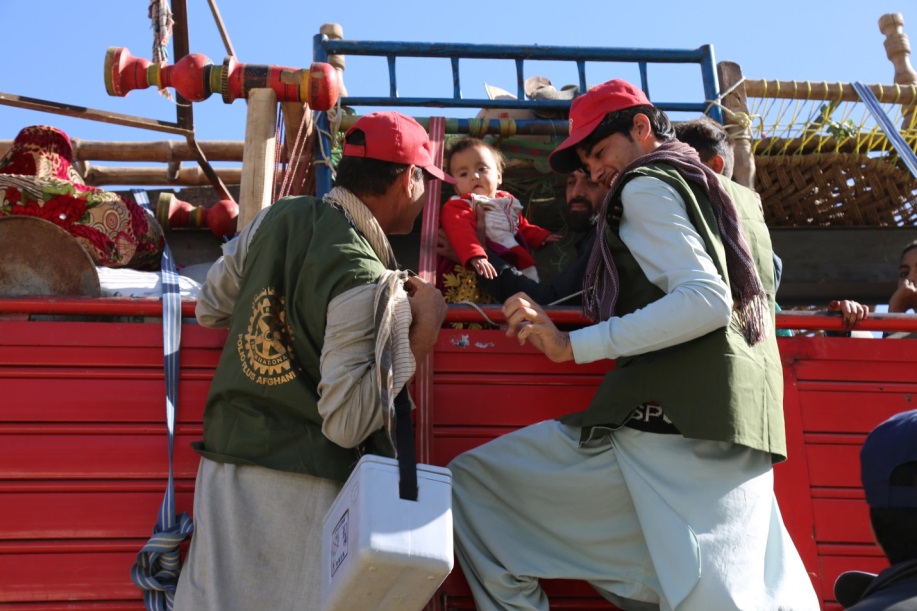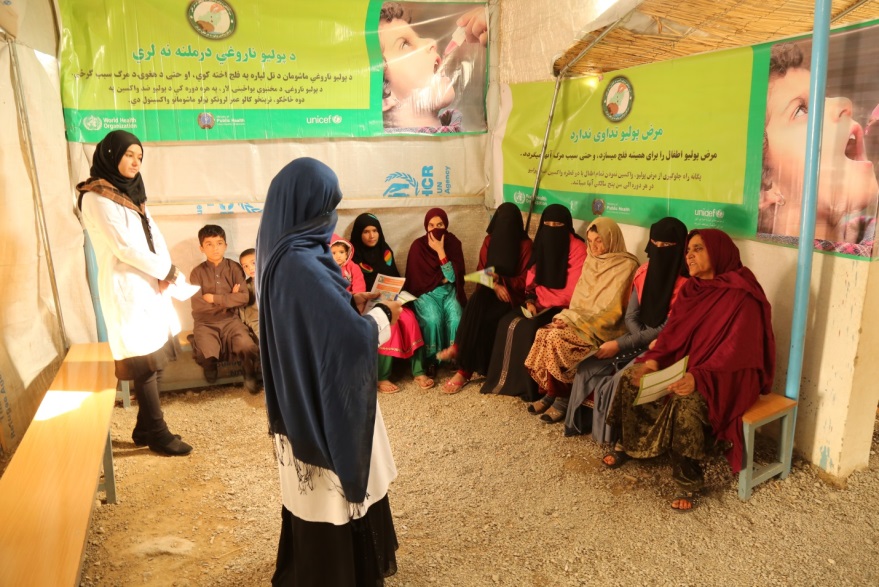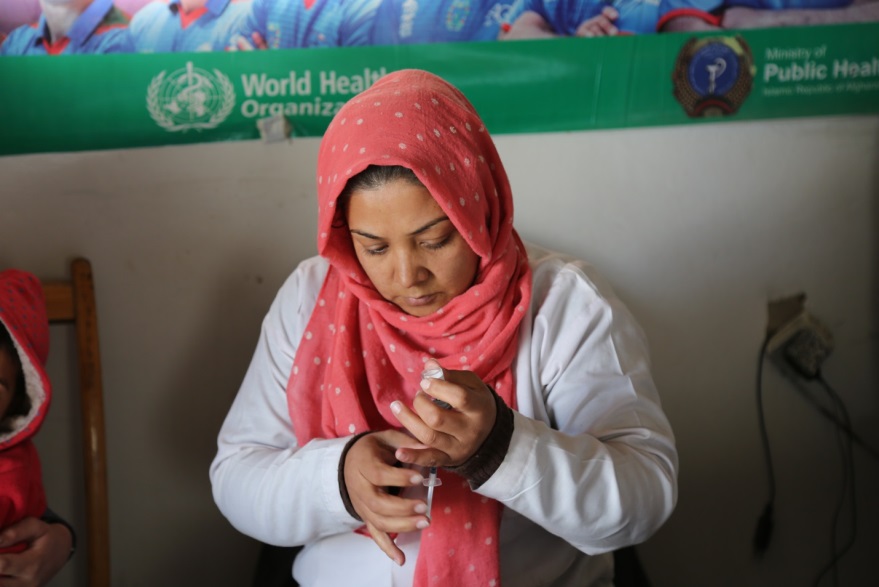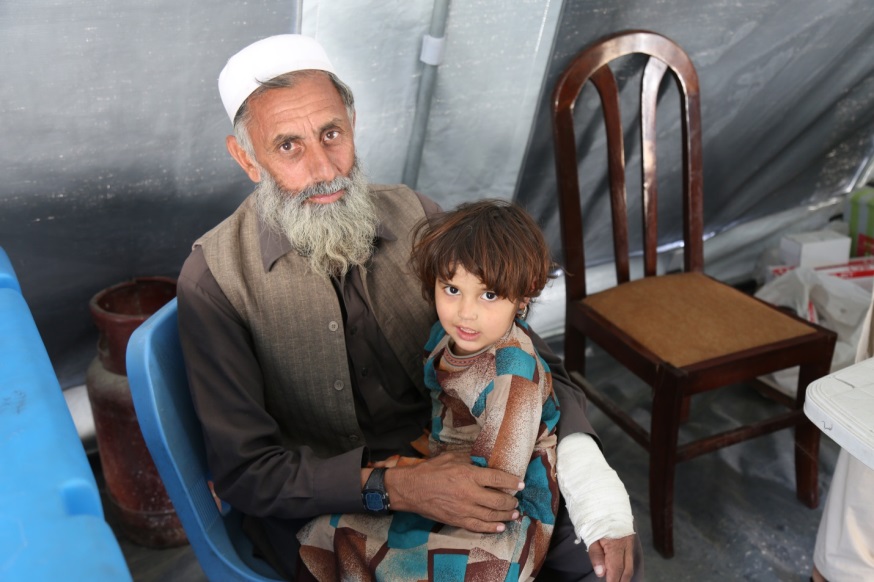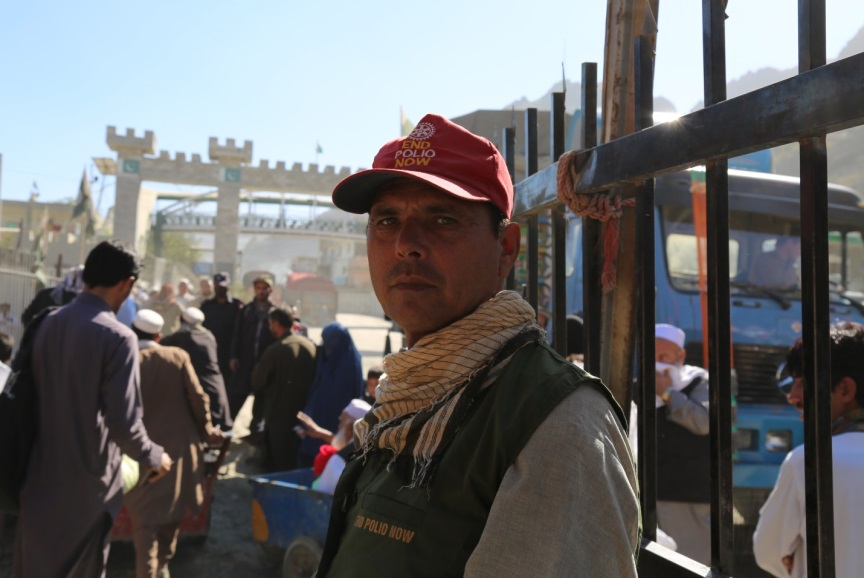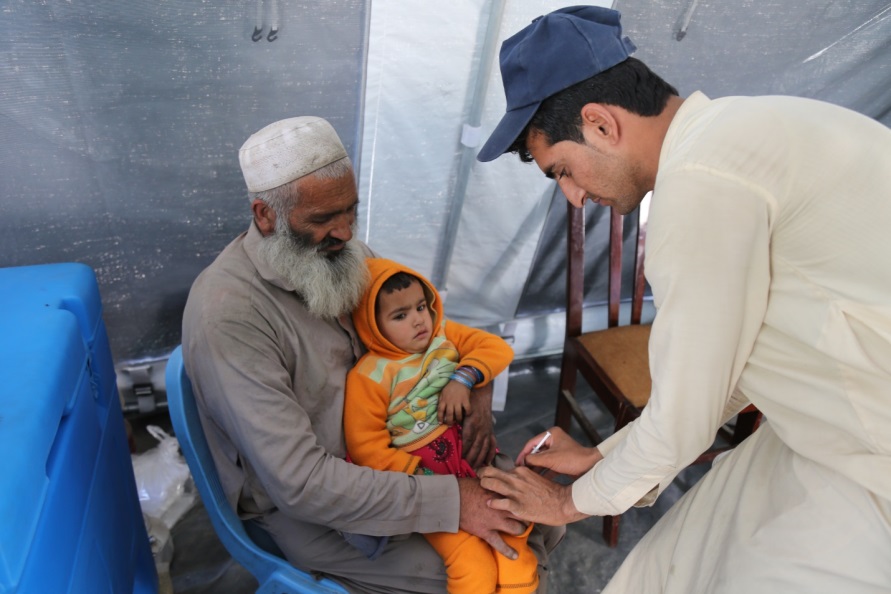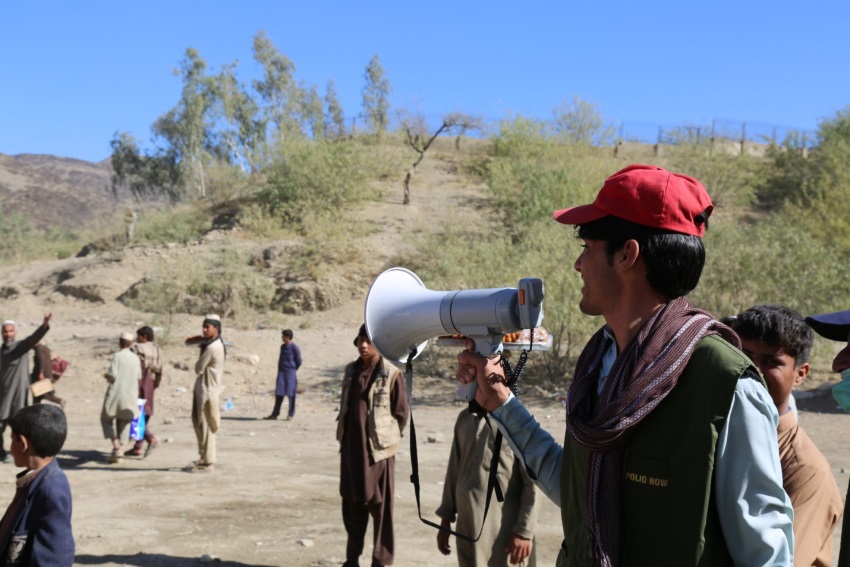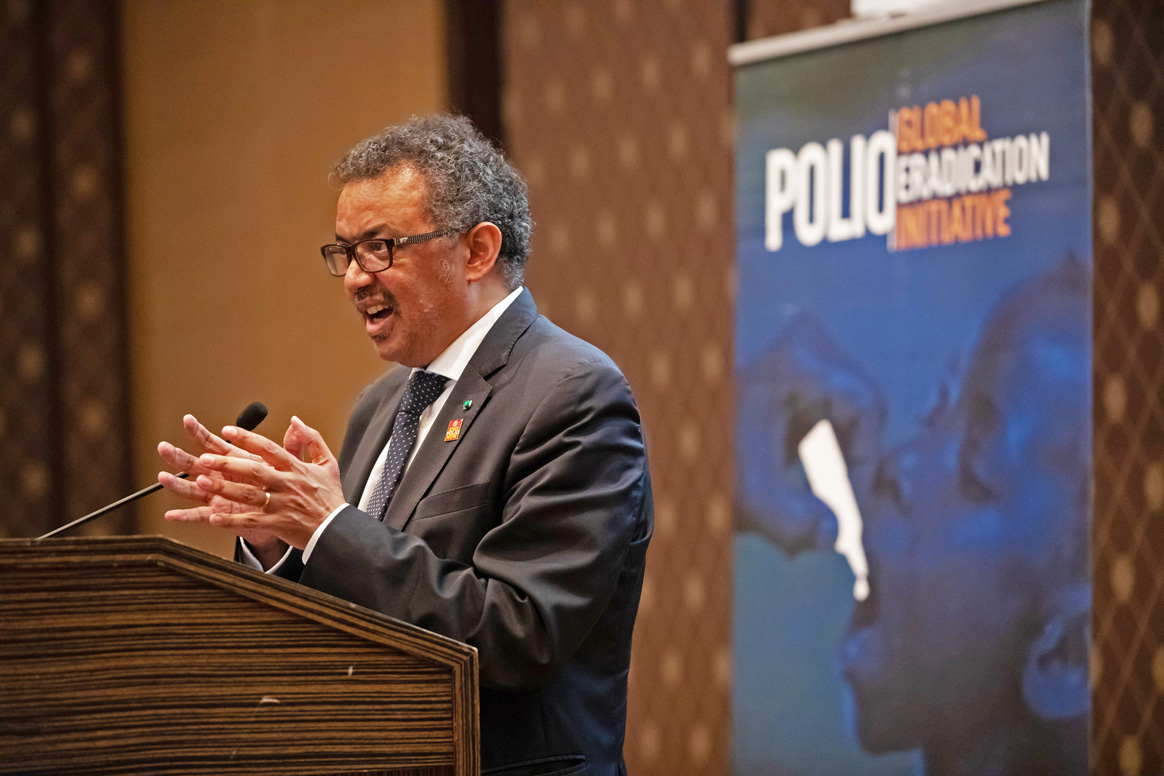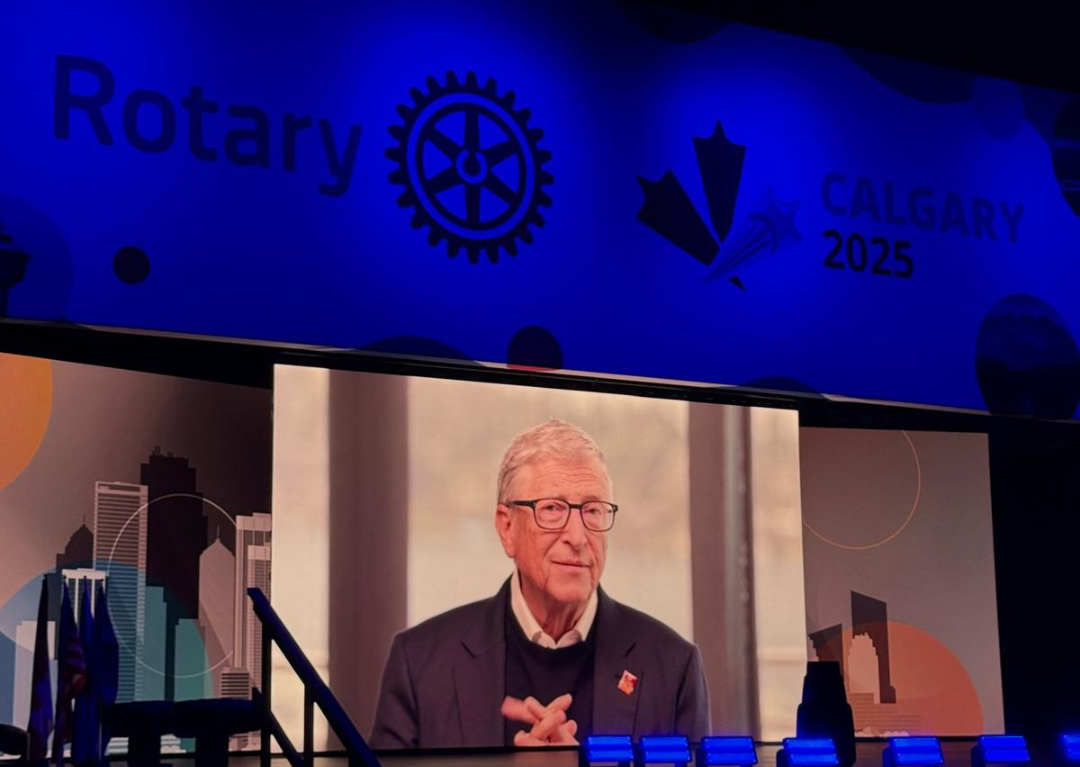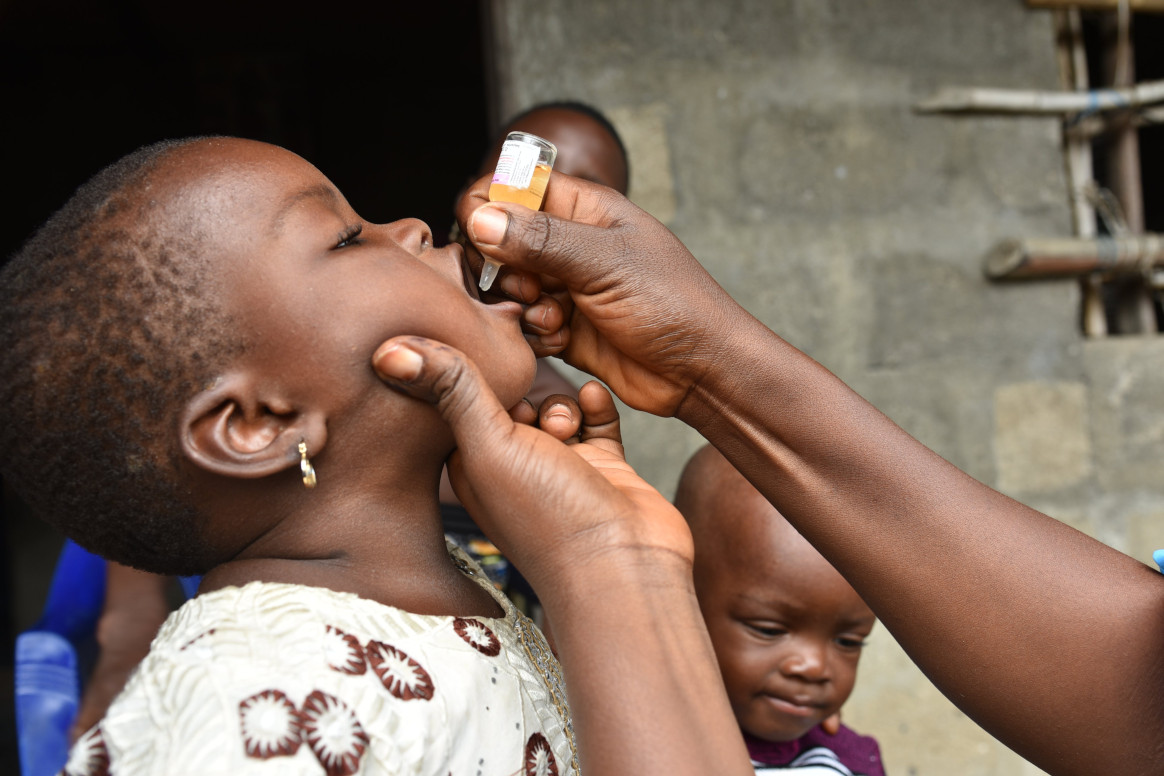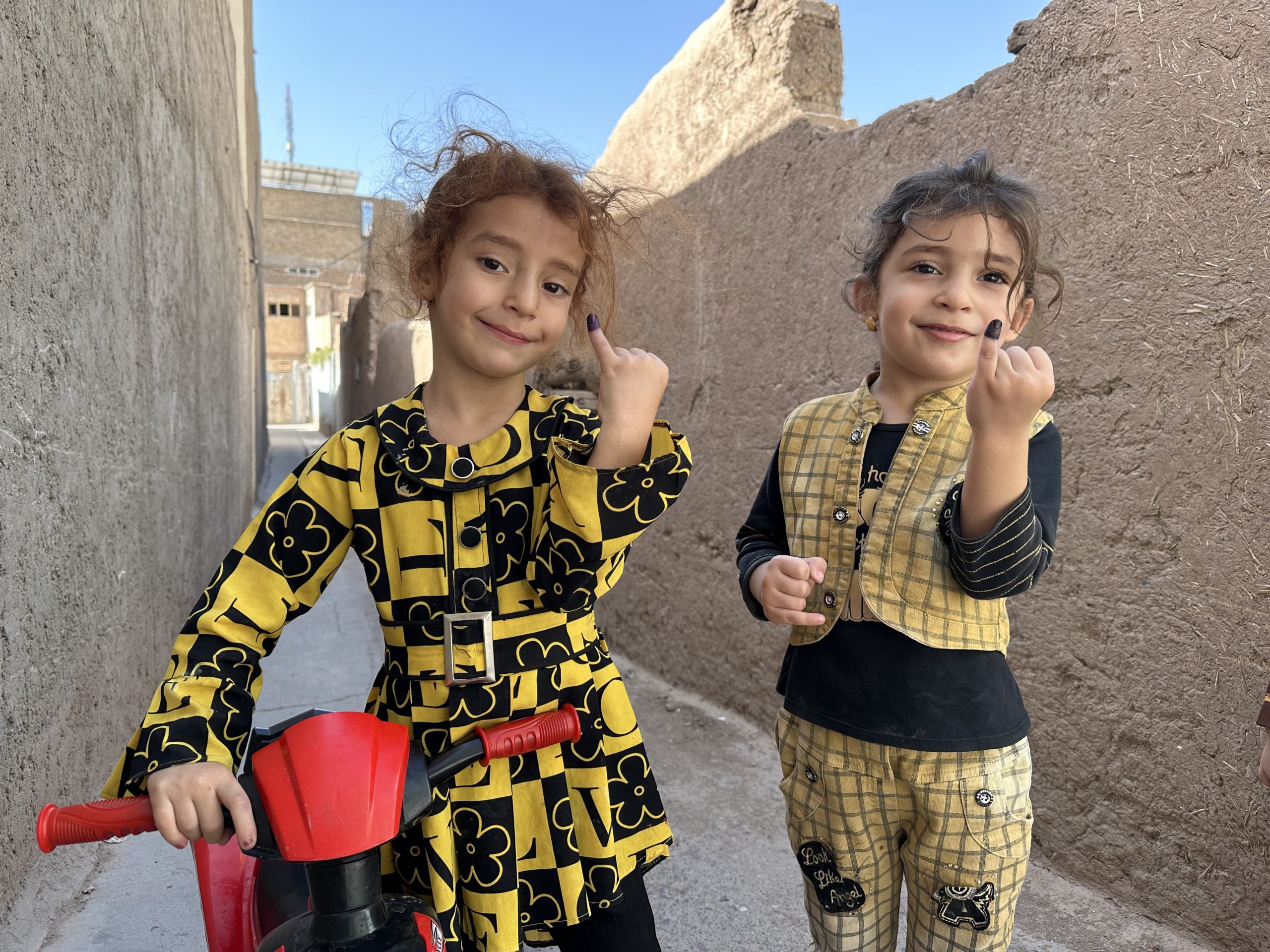The borders between Afghanistan and Pakistan are porous, with populations moving fluidly between the two countries despite challenging terrain. With both countries continuing to find cases of polio, ensuring that every child crossing the border receives polio vaccines is important to stop the virus in its tracks. Following a decision to repatriate Afghan refugees from Pakistan, the numbers of people moving across the border has risen dramatically in the last year.
Children arriving from Pakistan are at risk of communicable diseases such as polio, pertussis and measles and many suffer from acute respiratory infections due to colder weather conditions. Many are also at risk of malnutrition. Afghanistan remains a polio-endemic country; this year there have been 12 confirmed polio cases to date in Afghanistan from the eastern, southern and south-eastern regions.
Polio vaccinators climb onto a truck to vaccinate a child at the Torkham border in Nangarhar, the busiest border crossing in Afghanistan. Over 50,000 children have been vaccinated with the oral polio vaccine (OPV) at this border crossing since July this year by vaccination teams supported by the Ministry of Public Health, WHO and UNICEF.
Currently polio teams are working at 17 cross-border points to ensure that all children entering Afghanistan get immunized against polio. Over 280 Permanent Transit Teams (PTTs) vaccinate children who travel in and out of security-compromised areas and children traveling to other destinations to ensure that every child on the move receives two drops of the oral polio vaccine to grow up healthy.
Polio social mobilizers talk to women who have just arrived from Haripur, Pakistan, about the different kinds of vaccinations children need and the benefits of immunization. They also describe to them the symptoms of acute flaccid paralysis (AFP), the symptoms of polio, asking the women to bring their children to the nearest health centre if they suffer from any floppy weakness of the limbs.
Elina prepares the inactivated polio vaccine (IPV) to administer to Maryam, a three-year-old refugee, at the UNHCR encashment centre in east Kabul. “I am a mother of three daughters and really enjoy my job as a nurse and vaccinator. I want to help our children and make sure all Afghan children can be spared from polio paralysis by giving them the polio vaccine.”
Wali Mohammad has lived in Pakistan for 25 years and is now returning with his seven daughters and five sons. He holds his 3-year-old-daughter Amina on his lap at an IOM transit centre near the border in Nangargar as she is given vaccines to protect her against measles and polio.
Sardar has been a polio vaccinator for five years. “We vaccinate hundreds of children every day by giving them two drops of the oral polio vaccine. We often climb into the trucks as they cross the border if the children don’t come down. This way we know we reach all children,” said Sardar, one of the vaccinators immunizing children at the Torkham border crossing in eastern Nangarhar province. “I want to help our children. Our country needs to finish polio for good.”
Razi Khan holds his daughter Asma as she gets the injectable inactivated polio vaccine (IPV) at the IOM transit centre near the Torkham border. Razi Khan has five daughters and four sons and he has lived in Pakistan for the last 30 years after moving there from Laghman province. Receiving IPV alongside OPV boosts immunity against polio.
Vaccinator Jawad calls out for children under the age of 10 at the Torkham border to get a polio vaccination if they have not yet received it from teams climbing into trucks.
With transmission limited to small geographic areas this year, Afghanistan is closer to stopping the circulation of wild poliovirus than ever before. To eradicate the debilitating disease for good, vaccination teams must continue to reach every single child, everywhere.
